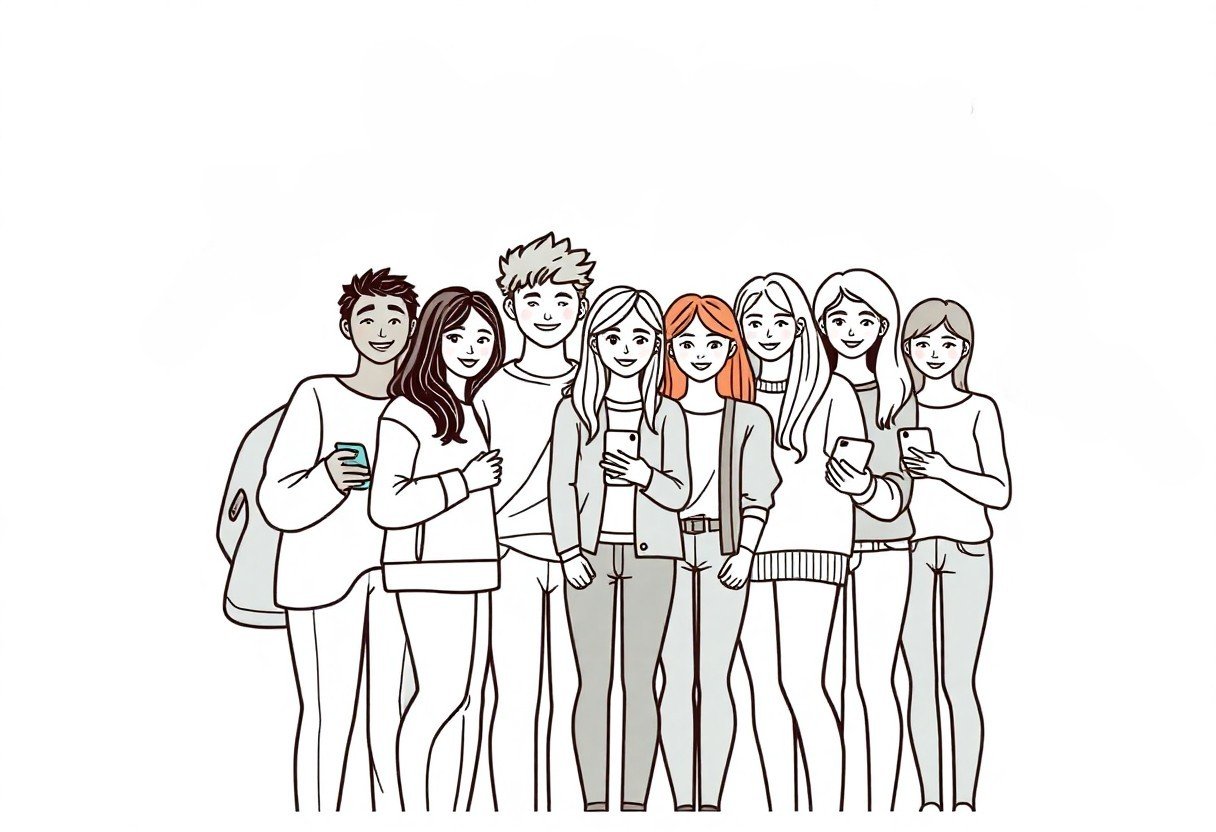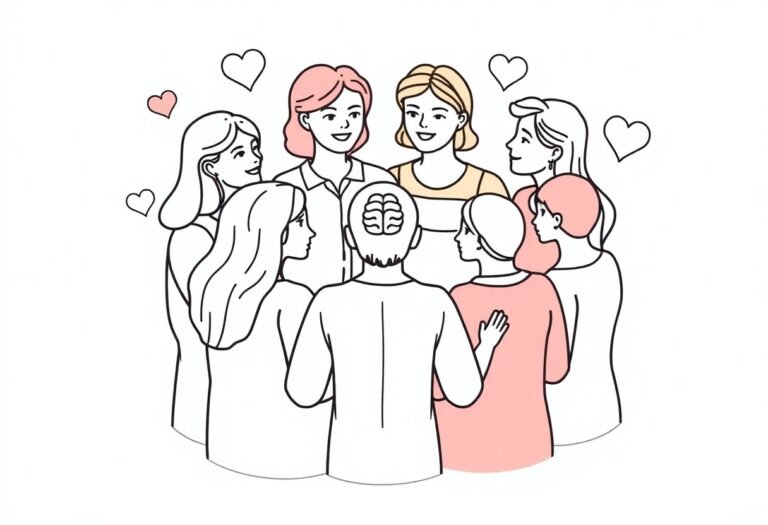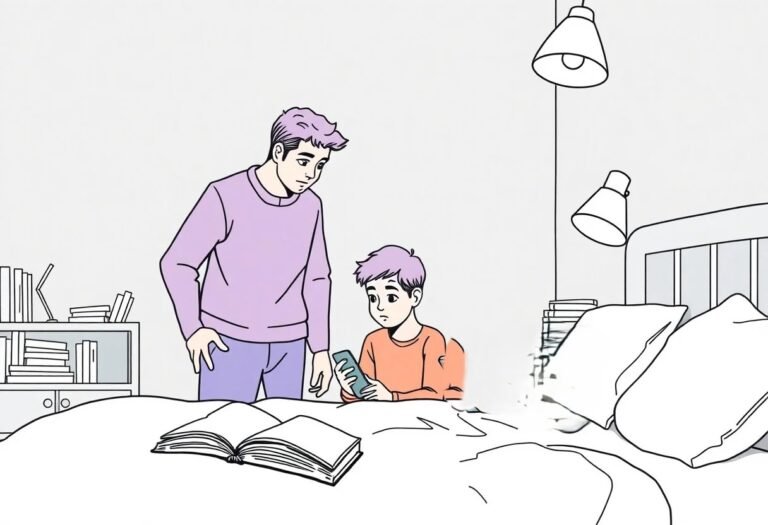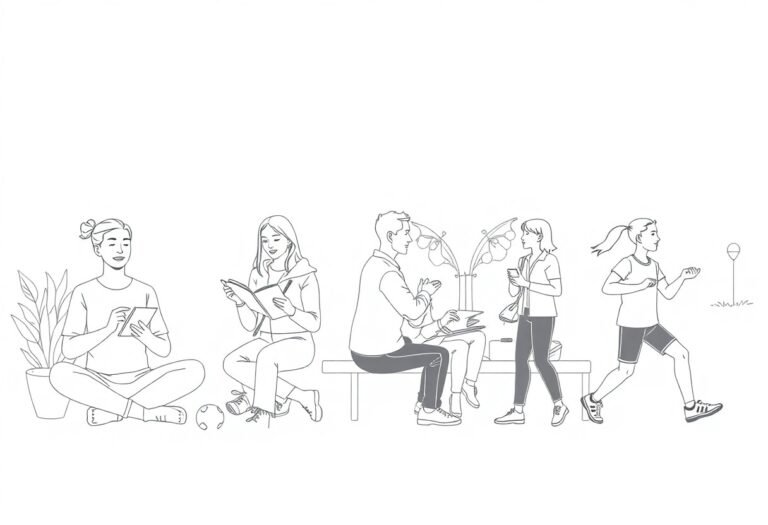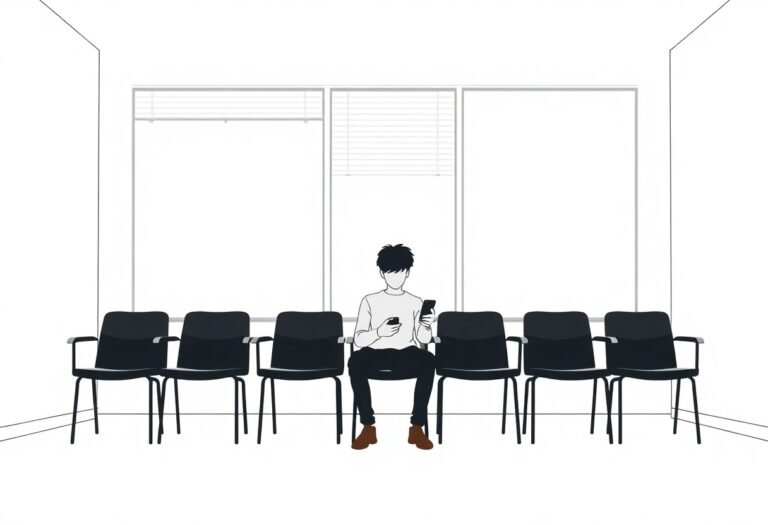What Role Does Pressure For Social Acceptance Play In Teen Mental Health?
With the pervasive influence of social media and peer interactions, pressure for social acceptance can significantly impact your mental health as a teenager. You may feel compelled to conform to certain norms or behaviours, leading to anxiety and low self-esteem. However, understanding this pressure can empower you to navigate these challenges more effectively. By recognising the balance between seeking acceptance and maintaining your individuality, you can forge a healthier relationship with both your peers and yourself.
Key Takeaways:
- Peer pressure can significantly impact a teen’s self-esteem and body image, influencing their mental well-being.
- Desire for social acceptance often leads to the adoption of unhealthy behaviours, such as substance use or risky activities, which can exacerbate mental health issues.
- Social media plays a key role in shaping perceptions of acceptance, creating a constant comparison culture that can heighten anxiety and depression among teens.
- Positive peer relationships and supportive friendships can mitigate the negative effects of social pressure, promoting healthier mental health outcomes.
- Open communication with parents and caregivers about social dynamics can help teens navigate pressure for acceptance more effectively.
The Concept of Social Acceptance
While navigating the often tumultuous teen years, the need for social acceptance becomes a significant aspect of your life. Understanding this concept means acknowledging how it shapes your interactions, self-esteem, and mental well-being. You may find yourself striving to fit into various social circles, which can influence your choices and overall happiness during these formative years.
Definition and Importance
Importance lies in the fact that social acceptance refers to the feeling of being welcomed and valued within a group. For you, this need can drive your relationships and impact your mental health. When you feel accepted, you’re more likely to experience positive emotions, foster healthy connections, and develop a strong sense of belonging. Conversely, rejection can lead to feelings of isolation and anxiety.
Historical Context
At various points in history, social acceptance has played an important role in human survival and community cohesion. As social beings, you have always relied on group dynamics for support and protection against external threats. Historically, those who were accepted in their communities flourished, while those who faced exclusion often suffered from severe consequences, ranging from mental health issues to physical dangers.
But examining these dynamics further reveals how social acceptance has evolved. In earlier societies, being part of a group was often a matter of survival, where acceptance ensured access to resources and safety. Now, in a digital age, the pressure to conform has shifted, but your need for acceptance remains strong. Social media platforms can amplify the pursuit of likes and validation, which may inadvertently contribute to anxiety, depression, and a distorted self-image. Thus, understanding the historical context of social acceptance can provide valuable insights into your current experiences and mental health challenges.
Peer Pressure and Its Effects
Even though peer pressure is often viewed negatively, it is an inherent part of adolescence that can significantly shape your experiences and mental health. The influence of peers can push you towards both positive and negative behaviours, making it imperative to understand how these pressures impact your choices and overall well-being. Learning to navigate peer dynamics is vital to maintaining a balanced perspective on social acceptance.
Positive Influences
Any positive peer influence can motivate you to engage in healthier behaviours, such as participating in extracurricular activities or focusing on academic achievements. Surrounding yourself with supportive friends can foster a sense of belonging and encourage you to pursue your passions, ultimately contributing to your personal growth and mental health.
Negative Influences
For many teens, negative peer pressure can lead to risky behaviours, including substance abuse, bullying, or engaging in unhealthy relationships. The desire to fit in may push you to compromise your values, resulting in feelings of guilt, anxiety, or low self-esteem.
A negative influence can manifest in various forms, such as pressure to conform to substance use or engage in reckless behaviour, which can have serious implications for your mental health. Struggling with self-identity may lead to unhealthy comparisons and a constant need for validation from peers. This peer dynamic can result in acute stress, deeper feelings of isolation, and a potential decline in overall well-being. Understanding the impact of these influences empowers you to make choices aligned with your values and promote a healthier state of mind.

Social Media’s Role
Not surprisingly, social media has become a significant factor in shaping teen mental health. Platforms like Instagram and TikTok amplify the pressure to conform to certain standards of beauty, success, and lifestyle. As a result, your sense of self-worth can heavily depend on likes and follows, effectively intensifying the desire for social acceptance among peers.
Virtual Acceptance and Validation
Social media provides a constant stream of feedback that can feel validating yet superficial. You may find yourself seeking likes and comments as a measure of your value and popularity. While this virtual acceptance can offer a temporary boost to your self-esteem, it often fails to provide the deep, genuine support that comes from real-life interactions.
Cyberbullying and Its Impact
Virtual interactions can also expose you to the darker side of social media, such as cyberbullying. This form of bullying can leave lasting emotional scars, making you feel isolated, vulnerable, and less secure in your social relationships.
Further, the impacts of cyberbullying can be severe. Victims often experience increased levels of anxiety and depression, showcasing how damaging online harassment can be for their mental health. The anonymity of the internet can embolden perpetrators, leading to a cycle of victimisation that can negatively affect your well-being. It’s vital to recognise the signs of cyberbullying and to seek help if you or someone you know is affected. Building a sense of community where support and kindness prevail can combat these issues and promote healthier interactions online.
Mental Health Consequences
Despite the growing awareness of mental health challenges, the pressure for social acceptance among teenagers often leads to significant psychological consequences. In an environment that prizes conformity, your emotional well-being can suffer dramatically, resulting in a range of mental health issues that affect daily life, relationships, and overall happiness. The drive to fit in can overshadow your individual identity, creating lasting impacts that may persist into adulthood.
Anxiety and Depression
Besides the pressures of social acceptance, many adolescents grapple with heightened anxiety and depression. These conditions can manifest through persistent worry, sadness, or a sense of isolation. As you navigate friendships and social media dynamics, the constant comparison to others can fuel these feelings, making it difficult to cope with daily challenges.
Self-Esteem Issues
By consistently seeking approval and validation from peers, you may experience severe self-esteem issues. The attempt to fit into perceived social norms can lead to feelings of inadequacy, where you doubt your worth based on external opinions. This internal struggle can intensify, establishing a negative self-image that impacts various aspects of your life.
Anxiety about social acceptance can severely damage your self-esteem. You might find yourself caught in a cycle where external validation becomes necessary for your self-worth. This need can make you overly sensitive to criticism and lead to feelings of inferiority when you don’t meet social expectations. It’s crucial to build a sense of self that relies more on your own values and less on the fleeting approval of others, fostering a healthier mindset that allows you to thrive regardless of external pressures.
Coping Mechanisms for Teens
Now, as a teen, it’s imperative to develop effective coping mechanisms that can help you navigate the challenges of social acceptance. These strategies not only improve your mental well-being but also enable you to manage stress and build a stronger sense of self. Discovering what works for you can empower you to face the pressures of adolescence with greater resilience and confidence.
Building Resilience
Teens often face numerous pressures, but building resilience can transform how you respond to stressors. By cultivating a growth mindset, practicing mindfulness, and setting realistic goals, you can learn to view challenges as opportunities for personal development. Developing resilience is about finding strength in adversity and recognizing that setbacks are part of life’s journey.
Seeking Support
An important aspect of coping is knowing when to seek support from others. Connecting with friends, family, or trusted adults can provide you with the comfort and guidance you need during tough times. Having someone to talk to can lighten the emotional load and help you feel that you are not alone in your struggles.
Also, actively seeking support is vital for your mental health. Engaging with a supportive network can provide you with varied perspectives and solutions to your problems. Whether it’s confiding in a close friend or reaching out to a school counsellor, having that emotional outlet is indispensable. Being open about your feelings fosters empathy and understanding, and can lead to stronger relationships, making it easier for you to navigate the complexities of social acceptance.
Parental and Educational Influence
After acknowledging the pressures teens face for social acceptance, it’s vital to consider how parental and educational environments can either alleviate or exacerbate these challenges. The support and guidance you receive from both your family and school can significantly impact your mental health, shaping how you navigate peer relationships and the need for acceptance. A nurturing atmosphere fosters resilience, while a critical or neglectful one may heighten feelings of inadequacy and anxiety.
The Role of Parents
At home, your parents serve as primary influencers on your understanding of social dynamics and acceptance. Their approach to communication, emotional support, and values can either empower you to embrace your individuality or pressure you to conform to societal expectations. Open dialogue about your feelings and experiences can help you feel validated, while their negative judgment may contribute to your struggles with self-esteem and acceptance among peers.
School Interventions
Parents, along with schools, play a pivotal role in shaping the environment that affects your social interactions. When educational institutions implement programs focused on building empathy and acceptance, they create a safer space for you to express your true self. These interventions can involve workshops or counselling sessions that teach you about the importance of diversity and respect, effectively reducing bullying and peer pressure.
To enhance this supportive environment, schools should actively engage in anti-bullying initiatives and provide resources that promote mental well-being. This can include training for teachers on identifying signs of distress in students, as well as establishing mentorship programs that connect you to positive role models. Furthermore, fostering a culture of inclusivity can encourage you to feel more secure in expressing your identity, ultimately leading to improved mental health outcomes. Collaborating with parents to reinforce these values at home can enhance the effectiveness of school interventions.
To wrap up
Upon reflecting, you can see that the pressure for social acceptance plays a significant role in shaping your mental health during the teenage years. The need to fit in can lead to stress, anxiety, and feelings of inadequacy, ultimately impacting your self-esteem and emotional well-being. It’s imperative to be mindful of these dynamics and to seek supportive environments that encourage authenticity rather than conformity. Fostering open communication and understanding can empower you to navigate these challenges, ensuring you prioritise your mental health while finding your unique place in social circles.
FAQ
Q: How does the desire for social acceptance affect a teenager’s mental health?
A: The desire for social acceptance can significantly impact a teenager’s mental health by influencing their self-esteem and self-image. Teens often seek validation from their peers, and when they feel accepted, their confidence can improve. Conversely, if they perceive rejection or lack of acceptance, it may lead to feelings of inadequacy, anxiety, and depression.
Q: What are some common behaviours exhibited by teens seeking social acceptance?
A: Teens may engage in various behaviours to gain social acceptance, including altering their appearance, adopting certain interests or hobbies, and conforming to group norms. They might also experience peer pressure, which can lead them to partake in risky behaviours, such as substance use or irresponsible actions, to fit in or gain approval from their peers.
Q: Why is peer influence considered significant during adolescence?
A: Peer influence is significant during adolescence due to the developmental stage where social identity begins to form. As teens explore their independence, they often look to their peers for guidance and acceptance. This reliance can shape their beliefs, behaviours, and emotions, making them more susceptible to stress and anxiety related to their social standing.
Q: How can parents support their teens in navigating social acceptance issues?
A: Parents can support their teens by fostering open communication and providing a safe space to express their feelings. Encouraging self-acceptance and emphasising individual strengths can build resilience. Additionally, discussing the importance of healthy friendships and teaching critical thinking skills can empower teens to make positive choices regarding peer influence.
Q: What strategies can teens use to cope with the pressure of social acceptance?
A: Teens can use several strategies to cope with the pressure of social acceptance, such as practising self-compassion, setting personal boundaries, and engaging in activities that promote self-esteem. Developing strong connections with supportive friends and mentors can also provide a buffer against negative social pressures, allowing them to feel valued for their authentic selves.
Check your mental health symptoms on NHS.
Mental Health in Children and Adolescents | Mental Health and Demographics

